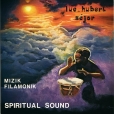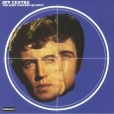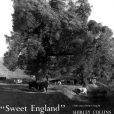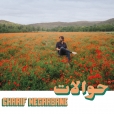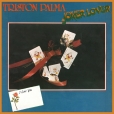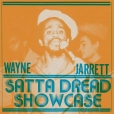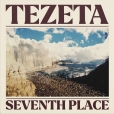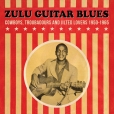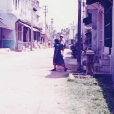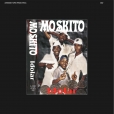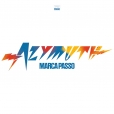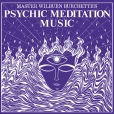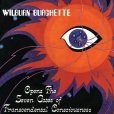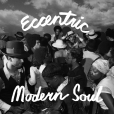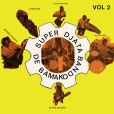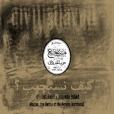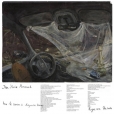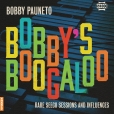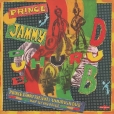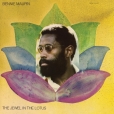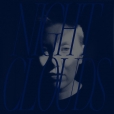Your basket is empty

Luminous, intensely committed, magical spirit music from late-seventies Guadeloupe, rooted in brilliant gokwa drumming.
It opens with two instrumentals — Penn é Plézi was the theme tune for Radio Guadeloupe’s funeral notices from 1980 to 1992 — before a call for cultural realignment. Then a three-part suite: Primyé Voyaj evokes the appalling tribulation of Africans deported as slaves to Guadeloupe; Dézyèm Voyaj addresses the Bumidom programme driving young Guadeloupeans towards the mirage of prosperity in sixties France; Twazyèm Voyaj closes the cycle with the emigrants’ return from Europe.
Deep, fabulous music.
Revered British jazz from 1969; the pianist leading a quartet featuring Harold McNair.
Originally out in 1969 on the Deram imprint which Decca set up for prog, new wave folk, and psych, Off Centre is obligingly eclectic. Cameron’s background in library and soundtrack music is opened up to the spirit of Roland Kirk. Best of several tasty modal numbers, the closer Troublemaker is a testifying rug-cutter, with a gritty flute solo by McNair.
Remastered at Abbey Road using the original tapes. New sleeve notes incorporate a recent interview with Cameron.
‘Tezeta were an experimental eight-piece instrumental group formed in Bristol back in 2014. The Ethiopiques series lit the fuse, but the project quickly gathered Afrobeat, prog, and improvisation into a beguiling mix — always evolving and resolving in different ways to what you might expect — with some thrilling ensemble playing rhythmically propelled by two drummers and a percussionist, and pianist Daniel Inzani’s evocative melodies at the centre. They had a cult following among other musicians and were known for wild group solo wig outs, virtuoso musicianship and creative use of unusual rhythm, harmony and melody. They toured across the UK at various venues and festivals including Glastonbury, Shambala and Green Man, before calling it a day in 2023. Seventh Place was originally a private press CDR, released in 2016; mainly sold at gigs.’
‘Absolutely gorgeous from start to finish’ (Deb Grant, BBC 6 Music). ‘Gorgeous mood music with more than a nod to Addis. Lovely tapestries and textures’ (Matt Temple, Matsuli Music).
‘Amazing! Like stumbling on a treasure-trove of unheard Charlie Patton and Blind Willie McTell 78s, but imbued with the spirit of Mahlathini and Ladysmith Black Mambazo,’ says Joe Boyd.
Classic kwaito by Professor Rhythm and friends, from 2001. That defining Jo’burg blend of hip-hop and house, but enlivened by a distinctive grab bag of fresh influences, and notably quirky and quick on its feet.
‘A kind of musical road movie, shifting gears through time, space, and reverie, with an itinerary and cast of characters looming in and out of focus. Post-punk chanson with an ear for micro-tonality. The balance of mutant music-boxes and dewy miniatures recalls otherworldly hits from Gareth Williams’ Flaming Tunes, The Residents, and the catchier corners of the Lovely Music catalogue.’
‘A more selfless album is hard to imagine,’ according to Down Beat in 1975. ‘The sound is supreme, and all the players strive to achieve a thorough blending.’ Recorded in New York in 1974, the disc’s personnel is drawn from the circle around Herbie Hancock in the period, but the music has a character all its own.
‘A classic of 1970s spiritual jazz, and as much as any recording on Strata East or Black Jazz, Maupin’s ECM offering is a wonder of arrangement and composition with gorgeous ensemble play, long yet sparse passages, space, and genuine strangeness. Maupin plays all of his reeds and flute in addition to glockenspiel here; Summers’ percussion effects include a water-filled garbage can. The two drummers swirling around in different channels don’t ever play the same thing, but counter and complement one another. And Hancock plays some of the most truly Spartan and lyrically modal piano in his career here… This album sounds as timeless and adventurous in the present as the day it was released’ (AllMusic).
‘Luminessence Series.’
Kit Downes is on organ. Hayden Chisholm contributes alto saxophone, shruti box, analogue synthesizer, and throat singing. The vocals are by PJEV, a female a cappella vocal quintet from Zagreb devoted to the traditional singing of Serbia, Croatia, Bosnia and Herzegovina.
‘This is a remarkable, stirring piece of work that works right into your bones’ (Dusted).
‘Your mind will be truly blown’ (Songlines).
